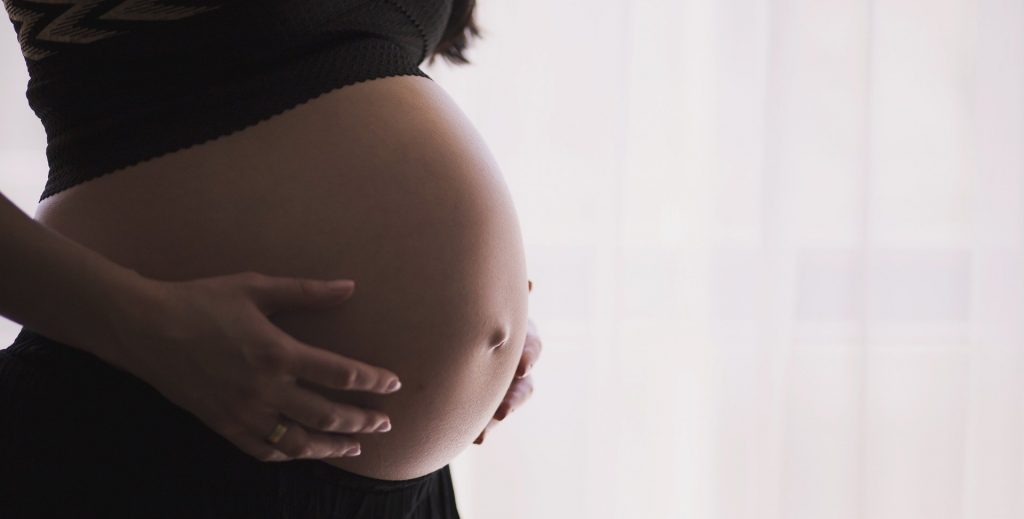
COVID-19 & Pregnancy: Q&A with Dr. Serena Gundy
Having a baby is a joyful time – but having a baby during a pandemic can feel a little more stressful. Dr. Serena Gundy, director of Hamilton Health Sciences’ Obstetric Medicine program, answers some frequently asked questions about COVID-19, pregnancy, and vaccines.
Are pregnant people at a higher risk for contracting COVID-19?
The good news is that being pregnant in and of itself does not seem make you more susceptible to COVID-19. For those who do have the virus and experience symptoms, the majority will have a mild illness and do well.
That being said, there is a small but important group of pregnant people who will go on to develop more severe disease to the point of needing hospital care or even critical care. When we compare to women in the same age group who are not pregnant, once you have COVID-19, being pregnant does increase the risk of more severe disease by about 4-6 times.
We also know that being really sick with COVID-19 while pregnant can increase the risk of other pregnancy complications such as preterm birth, fetal growth restriction and preeclampsia (high blood pressure and potential damage to other organs like the liver and kidneys). While developing a severe infection is very serious for anyone, having both parent and unborn baby potentially affected makes it even more important to try and reduce the risk of this happening.
Should pregnant people take any different precautions to protect against COVID-19?
Nope! But it’s even more important to keep doing all the things we know work well. Wear a well-fitting mask when you are out, stay six feet apart from people outside your house, wash your hands and avoid gatherings and any large groups – particularly indoors.
I don’t want to downplay how hard this is though, especially at a time where you need any and all hands on deck. While most people are coping amazingly well, none of us have a guidebook for being pregnant in a pandemic so please reach out to your obstetrical care providers, friends, family, or whoever you draw support from on days that may be tougher than others.
Why do you think we are seeing more pregnant people in the hospital with COVID-19?
We are seeing higher levels of COVID positive pregnant people but there may be a couple reasons for this.
First, as the rate of COVID-10 infections in the community rises and the number of infected people overall gets larger, it does mean that some of these cases will be in pregnant people. (We’ve also noticed a bit of a baby boom over the past few months!)
Secondly, part of the reason we are seeing more COVID-19 cases in people who are pregnant may be that the infection is found incidentally through a screening swab before a procedure like a C-Section, and some who are coming in because it’s time to deliver but have very mild symptoms that would otherwise not require hospitalization.
But there is also this smaller but very important group of patients who are admitted because their COVID symptoms require additional treatments like oxygen and medications. These numbers have also risen compared to the first and second wave. The good news is that we now have several medications which we know can help reduce the severity of symptoms and help people recover faster. Even better news is that we know pretty much every COVID-19 treatment we would use for someone sick enough to be in hospital can be used safely in pregnancy.
No matter what, we know that being admitted with COVID-19 while pregnant is hugely stressful for patients and their families (who are often at home isolating from the same exposure). We hope as the numbers go down, and with pregnant patients being made a high vaccine priority, that we won’t have too many more cases.
If a mother has COVID-19, will she pass it on to her child? What is the risk to newborns?
This has been one of the good news stories and seems to be holding even with higher rates of pregnant people being infected. Overall, the risk of transmitting COVID-19 to the baby while pregnant or at the time of delivery appears to be extremely low. Not impossible, as there have been cases where virus particles have been found in the placenta and/or a newborn has swabbed positive, but this is in a minority of cases. In addition, most newborns who have tested positive have been asymptomatic and there have not been any cases I am aware of where a baby has become very sick from COVID-19 themselves.
That said, some of the complications that can occur to a pregnant person with a severe COVID-19 infection can affect their baby. For example, if a decision is made to deliver the baby early to try to help the mother’s breathing, this can have a significant impact on a baby who would have otherwise been expected to have been born at term.
Our medicine, pediatrics and obstetrics teams have gotten really good at working together to make sure both the parent and newborn are cared for as a unit. But, I think we would all agree the key is preventing these infections from occurring in the first place.
Should you get the vaccine if you are pregnant or breastfeeding?
This is an area understandably where there has been a lot of worry with people wanting to do the best thing for both them and their little one. At the beginning, it was hard. While we knew there was nothing about the vaccine components that has ever been found to be dangerous to either pregnant people or their babies, the fact that this group was not included in the original vaccine studies meant that we had to do a bit more leg work to get people the information they needed to make the best decision for them. This became even more important in the third wave where we have been seeing higher rates of really sick pregnant patients.
In the last few months, we have been lucky to see the results from several large registries in the UK and USA and have gathered more and more information around the vaccine in pregnancy at all stages. The great news is that so far, we are seeing lots of reassuring data to support not only their safety, but their effectiveness in pregnancy and the postpartum period. Researchers have also been able to show that antibodies made after a pregnant person is vaccinated, particularly in the third trimester, do pass over to the baby – think of it as an extra added bonus!
The great news is that so far, we are seeing lots of reassuring data to support not only their safety, but their effectiveness in pregnancy and the postpartum period.
Now that pregnant people have been given priority status in Ontario, our obstetrical and primary care providers are ready to provide any additional information you or your loved ones need to feel confident in a decision to be vaccinated. There are also fantastic online resources and decision aids such as the one developed by the Provincial Council for Maternal and Child Health (below).


